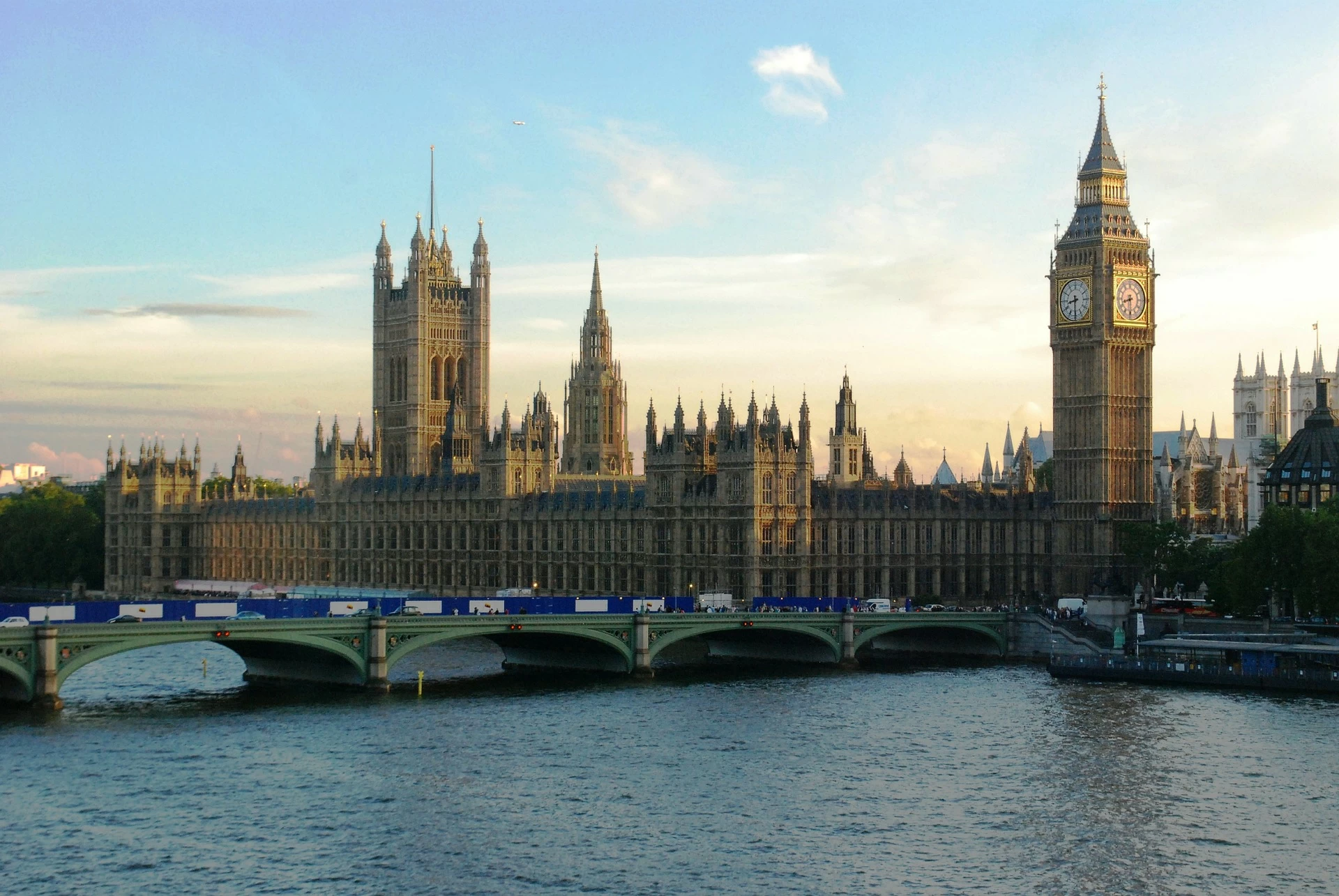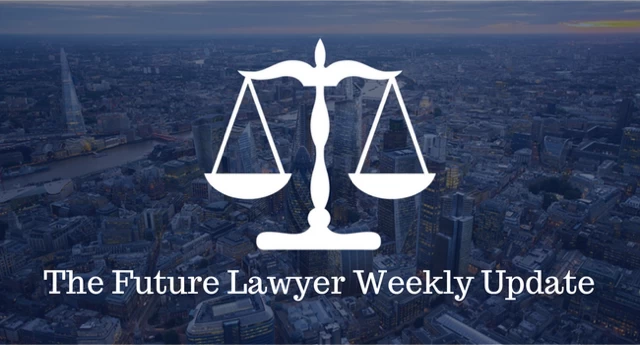
Everything you need to know about the parliamentary process and Brexit
September 7, 2019
Clear the Lobby: What laws are MPs voting on this week? – w/c 10th September
September 9, 2019The round-up of the stories that a budding Student Lawyer should be aware of this week:
Continuing delays to probate applications
Probate Litigation Update
Reported by Ellena Mottram
On the 10th September The Law Society, the Society of Trust and Estate Practitioners (STEP) and the Solicitors for the Elderly (SFE) will be meeting with HM Courts and Tribunals Service (HMCTS) to review the ongoing delays facing the probate service. The Law Society say they are continuing to place pressure on HMCTS to resolve the problem of long delays.
The delays facing Probate Solicitors began to materialise in March where the number of probate applications rose by 22% from the previous year. This rise was explained by the proposed increase in fees due at the start of April – although this rise never actually occurred. Following this large increase in the number of cases, delays were exacerbated by the introduction of new software at probate offices. This software was alleging causing delays of up to thirteen weeks.
It does not appear that the problem will be going away any time soon, especially because this week saw the closure of the first probate register office as part of the £1bn court reforms programme.
Ultimately, the plan is to move all probate services to the Courts and Tribunals Service Centre in Birmingham with some administrative work being completed at a secondary site.
Whilst HMCT has stated they are issuing grants at a higher rate and the backlog of 40,000 cases is gradually decreasing, solicitors are reporting waits of over six to eight weeks for grants of probate.
Whilst this is an improvement on the thirteen week wait caused by the software introduction, it should be noted that the previous wait time was two weeks.
A grant of probate is required for executors to carry out the wishes of the deceased as without it an executor cannot pass bequests to the beneficiaries and sales of properties cannot be completed.
Given executors are bound by law to safeguard the assets outlined in a will, the delays are creating increased pressures at an already difficult time.
With the review impending and the problem on going, it appears tensions are rising. The Law Society has accused the Ministry of Justice of under-reporting probate delays and the Government has implied that the delay is the fault of solicitors producing faulty applications.
You can find out more here and here.
Brexit: Judicial Review Application
Gina Miller to Continue Fighting after High Court Rejected her Claim
Reported by Jutha Cheewat
The anti-Brexit campaigner, Gina Miller vowed, in front go the Royal Courts of Justice, to continue her fight for democracy after judges dismissed her urgent judicial review application. The high court ruled that the PM’s decision to advice the Queen to suspend parliament was not unlawful.
According to the Guardian, Miller expressed her view that “We are very disappointed with the judgment today.”
“As our politics becomes more chaotic on a daily basis, the more vital it is that parliament is sitting.”
“It is not right that they should be bullied or shut down – especially at this most momentous of times in the history of our United Kingdom. My legal team and I will not give up the fight for democracy.”
Lord Pannick QC, representing Miller, described Boris Johnson’s advice as “unlawful abuse of power”, at the most critical time. Nevertheless, the PM’s legal team insisted that the claim was purely “academic”.
However, the most senior sitting judges (The lord chief justice, the master of the rolls and the president of the Queen’s bench division) granted permission for the case to be appealed at the Supreme Court. Further explanation will be released next week.
Digital Law: E-Signatures
Electronic Execution of Documents
Reported by Laurence Tsai
For over a decade, the UK has accepted electronic signatures (e-Signatures) as a capable method of executing a document. Today, binding contracts are regularly signed every day with e-Signatures, such as doorstep deliveries, which has spurred increasing demand for convenient methods of completing a binding transaction. Therefore, more and more parties are arguing that agreements should be entirely electronic.
Nevertheless, the uncertainty related to whether e-Signatures are valid in all transactions in the UK has been lingering for a while – largely due to the fact that this issue is not contained in a single source – which has discouraged parties from making use of this technology, which could increase efficiency.
As a result, the Law Commission recently published a report to dispel these doubts, by confirming that an e-Signature is a legally valid form of executing a document or a deed, provided the other required formalities, such as witnesses, are met. This can apply whether there is a statutory requirement for it or not; and is not confined to commercial or consumer documents.
Stephen Lewis, commercial and common law commissioner, said: “Electronic signatures can offer quicker and easier transactions for businesses and consumers.”
There have been instances where the Courts of England and Wales have recognised a variety of non-electronic signatures, such as, an ‘X’, or ‘your loving mother’. The Courts have also accepted e-Signature methods, including a name typed at the bottom of an email or by clicking an ‘I accept’ tick box on a website. These latter cases supplement the eIDAS (electronic identification and trusts services) Regulation, which provides that all companies in the EU comply with each other’s e-Signature regulations.
The report highlights some of the current problems regarding e-Signatures, such as the evidential value of an e-Signature; the greater likelihood of fraud e-Signatures bring as opposed to handwritten signatures; and that the current law of deeds is no longer fit for purpose. However, it maintained the current requirement that witnesses to a deed must be physically present during the execution and attestation of the document.
The report, therefore, includes several options and recommendations for reform. Options for reform include Government considering codifying the law regarding e-Signatures to improve accessibility of the law; and whether it should expressly exclude anything for which electronic execution is not considered appropriate.
The recommendations are that Government establishes an industry working group, which would consist of a multi-disciplinary membership, to consider practical and technical issues associated with the electronic execution of documents. The group should look at solutions to the practical and technical obstacles that exist to video witnessing. If this concept is still attractive, Government should then consider legislative reform to allow for video witnessing. Finally, the Commission proposes a future review of the current law of deeds to consider broad issues about the effectiveness of deeds and whether this area of law remains fit for purpose.
Naturally, stakeholders have voiced many concerns, including the Law Society, which warned against rushing towards a technological solution. Consideration should be given to what is sufficiently secure and reliable to prevent individuals being put at cyber risk before introduction any system using e-Signatures.
You can find out more here and here.
Privacy rights: Facial Recognition by Police
A New Way for Police to Improve Mass Surveillance: the Use of Facial Recognition
Reported by Emma Ducroix
According to the Cardiff high court, this method is now legal.
Police use of automatic facial recognition technology to search for people in crowds is lawful, the high court declared.
Facial recognition technology maps faces in a crowd and compares them to a watch list of images, which can include suspects, missing people and persons of interest to the police.
The cameras scan faces in large crowds in public places such as streets, shopping centres, football crowds and music events such as the Notting Hill carnival.
Three UK forces have used facial recognition in public spaces since June 2015: the Met, Leicestershire and South Wales police.
Although the mass surveillance system interferes with the privacy rights of those scanned by security cameras, judges have concluded, it is not illegal.
The legal decision came on the same day the mayor of London, Sadiq Khan, acknowledged that the Metropolitan police had participated in the deployment of facial recognition software at the King’s Cross development in central London between 2016 and 2018, sharing some images with the property company running the scheme for reasons of “public safety”.
Although this is now legal, public opinion is less in favour: “South Wales police has been using facial recognition indiscriminately against thousands of innocent people, without our knowledge or consent. This sinister technology undermines our privacy and we have to fight against its unlawful use to ensure our rights are protected and we are free from disproportionate government surveillance.”
The judges found that although automated facial recognition (AFR) amounted to interference with privacy rights, there was a lawful basis for it and the legal framework used by the police was proportionate.
Dismissing the challenge, Lord Justice Haddon-Cave, sitting with Mr Justice Swift, said: “ South Wales police’s use to date of AFR Locate has been consistent with the requirements of the Human Rights Act and the data protection legislation.”
Responding to the judgment, Megan Goulding, a Liberty lawyer, said: “This disappointing judgment does not reflect the very serious threat that facial recognition poses to our rights and freedoms … It is time that the government recognised the danger this dystopian technology presents to our democratic values and banned its use.”
Lawyers for South Wales police told the hearing facial recognition cameras prevented crime, protected the public and did not breach the privacy of innocent people whose images were captured. The technology was even likened to police use of DNA.
“It would be wrong in principle for the police to set the bounds of our use of new technology for ourselves.”
A spokeswoman for the Information Commissioners’ Office, which intervened in the case, said: “We welcome the court’s finding that the police use of live facial recognition systems involves the processing of sensitive personal data of members of the public, requiring compliance with the Data Protection Act 2018.
“This new and intrusive technology has the potential, if used without the right privacy safeguards, to undermine rather than enhance confidence in the police.”
A survey of more than 4,000 adults released this week by the Ada Lovelace Institute found that a majority (55%) want the government to impose restrictions on police use of facial recognition technology but that nearly half (49%) support use of facial recognition technology in day to day policing, assuming appropriate safeguards are in place.
You can find out more here.




